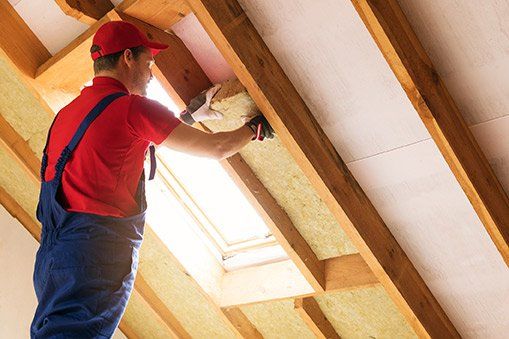4 Tips to Improve Your Home's Natural Insulating Properties
- By Admin
- •
- 22 Jan, 2019

If you have high energy bills from heating and cooling your home, the problem may not be related to your HVAC system. Even if you have a great system, you will lose and gain heat if your home isn't naturally well insulated. Luckily, there are many ways you can boost the energy efficiency of your home. Check out these four tips to learn how.
1. Add Insulation Where Needed
The best place to start is by adding insulation where it's needed, such as the attic, garage, basement, walls, and ceiling.
The attic - if it's unfinished - is a great place to check your insulation levels. Check how high the insulation is; it should be well over the floor joists. Ideally, you want an R-Value of about R-38 - which is about 10 to 14 inches of insulation - depending on where you live.
If you don't have enough insulation in your attic, it may indicate you don't have enough insulation throughout your home. Adding insulation to unfished walls and rooms is fairly simple. However, if you need to add some to finished walls, floors, and ceilings, you may need to consider spray foam insulation or blown loose fibers, which can be added through small holes in the wall.
2. Consider Energy-Efficient Windows
There are many windows that offer better energy efficiency. For example, simply replacing old metal window frames with vinyl ones can help stop the transfer of heat because vinyl has insulating properties.
However, there are other features of more advanced energy-efficient windows, which can further help with heat gain and loss. Many energy-efficient windows have double panes with spacers to separate the panes. The space between the panes is filled with insulating gasses to improve the U-factor of the window. This prevents the interior window pane from getting hot or cold, which can lead to heat gain or drafts.
In addition, you can have coatings with low emissivity (low-E) added to windows. These coatings block invisible UV light to keep out heat without impacting vision.
3. Choose a Well-Insulated Garage Door
Your garage door can be a major problem, especially if it's old and worn down. Damage to the door, such as holes or cracks, can allow heat to pass directly though, making your garage too hot or too cold. Older doors may also have little insulation and weather stripping. For some homeowners, this isn't a problem because they don't use their garage often.
However, if you store certain items in the garage, such as photos, movies, electronics, or other items, too much heat or too much cold can damage them.
Also, if you have bedrooms above the garage, a well-insulated garage door will help reduce heat gain in the rooms as hot air from the garage rises.
4. Replace Your Other Exterior Doors
If your front door is getting old, it may also be a good idea to replace it. You can get a durable wood door, which offers natural insulating properties, or a steel door with insulation inside. A new door may also fit better and will prevent space around the door that would allow air to pass.
If you have a sliding glass back door, you're probably losing a lot of heat and experiencing a lot of drafts, especially if you have nothing covering the door. Luckily, you don't have to remove the door. Simply install an energy-efficient one, which should also have double panes, insulating gasses, and a low-E window coating.
These four tips will help keep your home naturally cooler in the summer and warmer in the winter. For more information about how we can help, contact us at Zumwalt Corporation today.



